Building a Jerk-Free Team: Key Lessons from Robert Sutton for Talent Acquisition
Sutton’s insights about jerks and toxic behavior are invaluable not just for managers but especially for those in talent acquisition. The quality of your hires directly shapes company culture, and bringing in just one toxic personality can derail an entire team. It’s important to remember that character matters as much as, if not more than, skill. And the ultimate lesson here is that creating a positive, jerk-free workplace starts with you. Ensuring you don’t overlook red flags, or let external pressures rush your hiring process, is key. You also can listen to our Podcast Episode on YouTube.
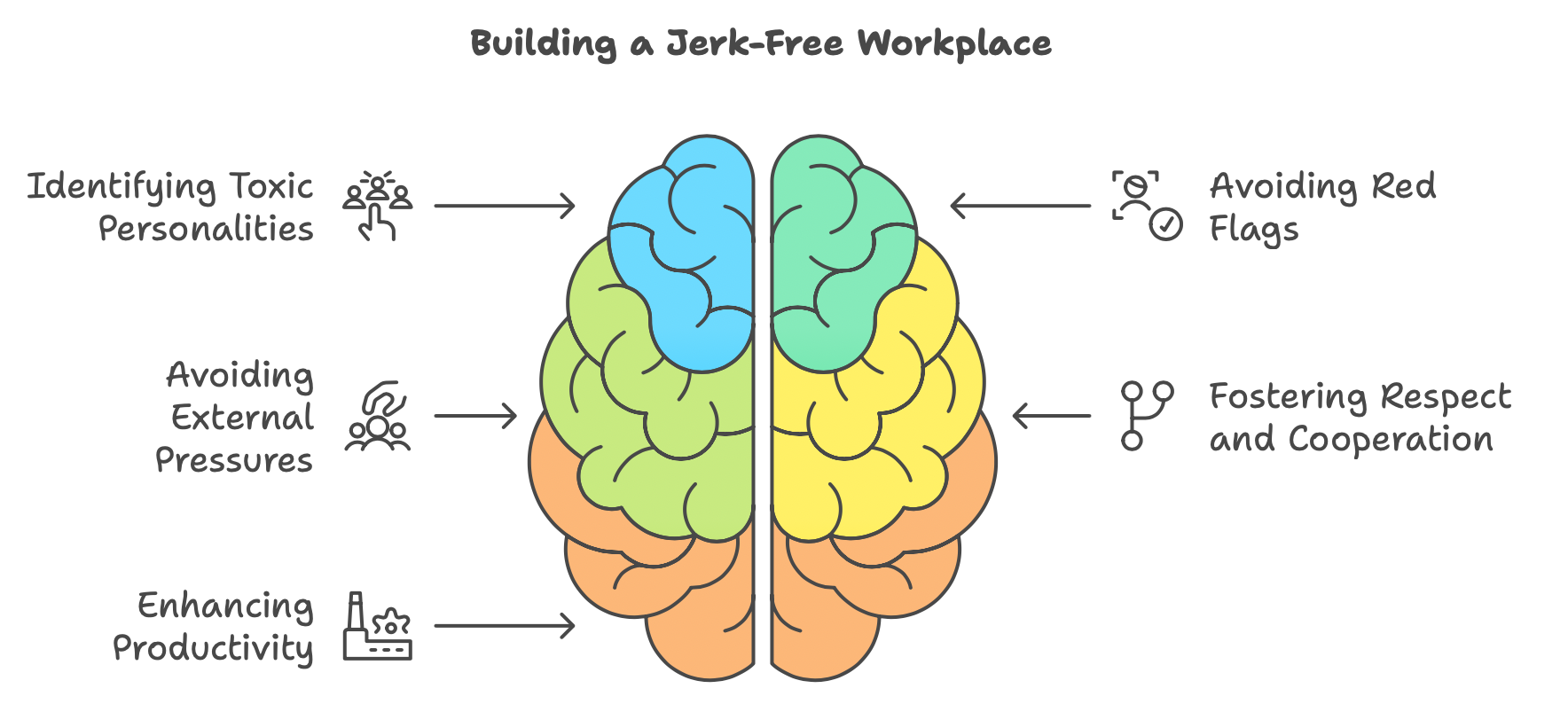
In the fast-paced, high-stress world of talent acquisition, the ability to identify and avoid toxic personalities—"jerks," as Robert Sutton puts it—can be a critical skill. Sutton's work isn’t just about avoiding negative people but about creating a work culture that thrives on respect, cooperation, and productivity. His ideas become especially important when you consider how toxic individuals can disrupt not only team dynamics but also the recruitment process itself.
Manipulation: Recognizing It Early in Talent Acquisition
One of the key lessons from Sutton’s book is the importance of recognizing manipulation early. In talent acquisition, this becomes particularly relevant when you deal with candidates or even hiring managers who play on biases or use pressure tactics to get what they want. Manipulation can range from candidates overselling their capabilities to managers pushing through their preferred hires by undermining others.
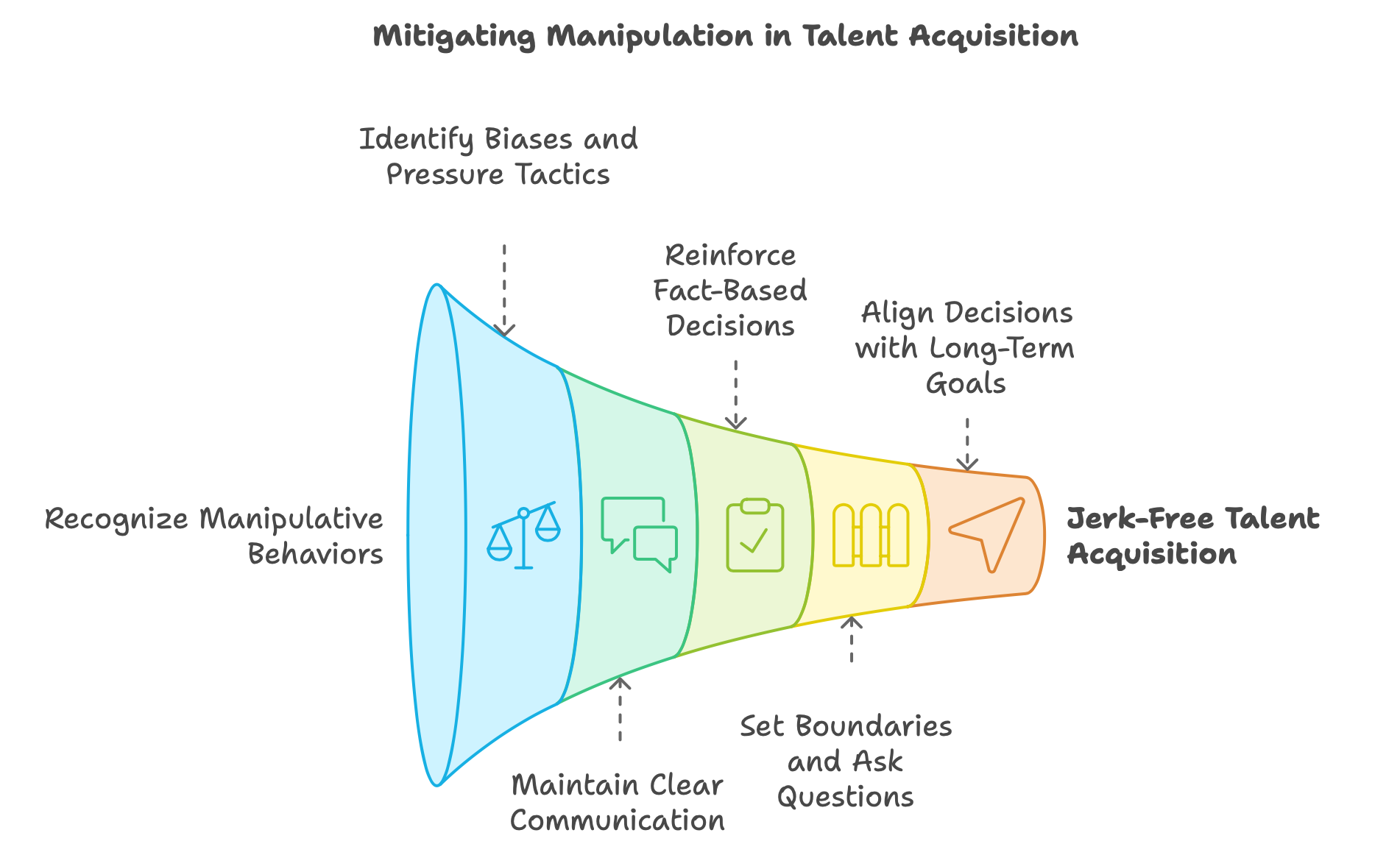
To prevent falling victim to such manipulations, Sutton suggests maintaining clear, consistent communication and reinforcing decision-making processes based on facts and competencies rather than emotions or office politics. Talent acquisition professionals should practice setting boundaries, asking clarifying questions, and ensuring that decisions are aligned with long-term goals rather than short-term emotions.
Building Positivity in Teams
Maintaining positivity within the recruitment team itself is another important takeaway. Working in talent acquisition often means facing setbacks - candidates dropping out last minute, rejections from top talent, or misaligned hiring needs. Sutton's advice to keep toxic personalities at bay applies just as much to keeping negativity from taking root within your recruitment teams.
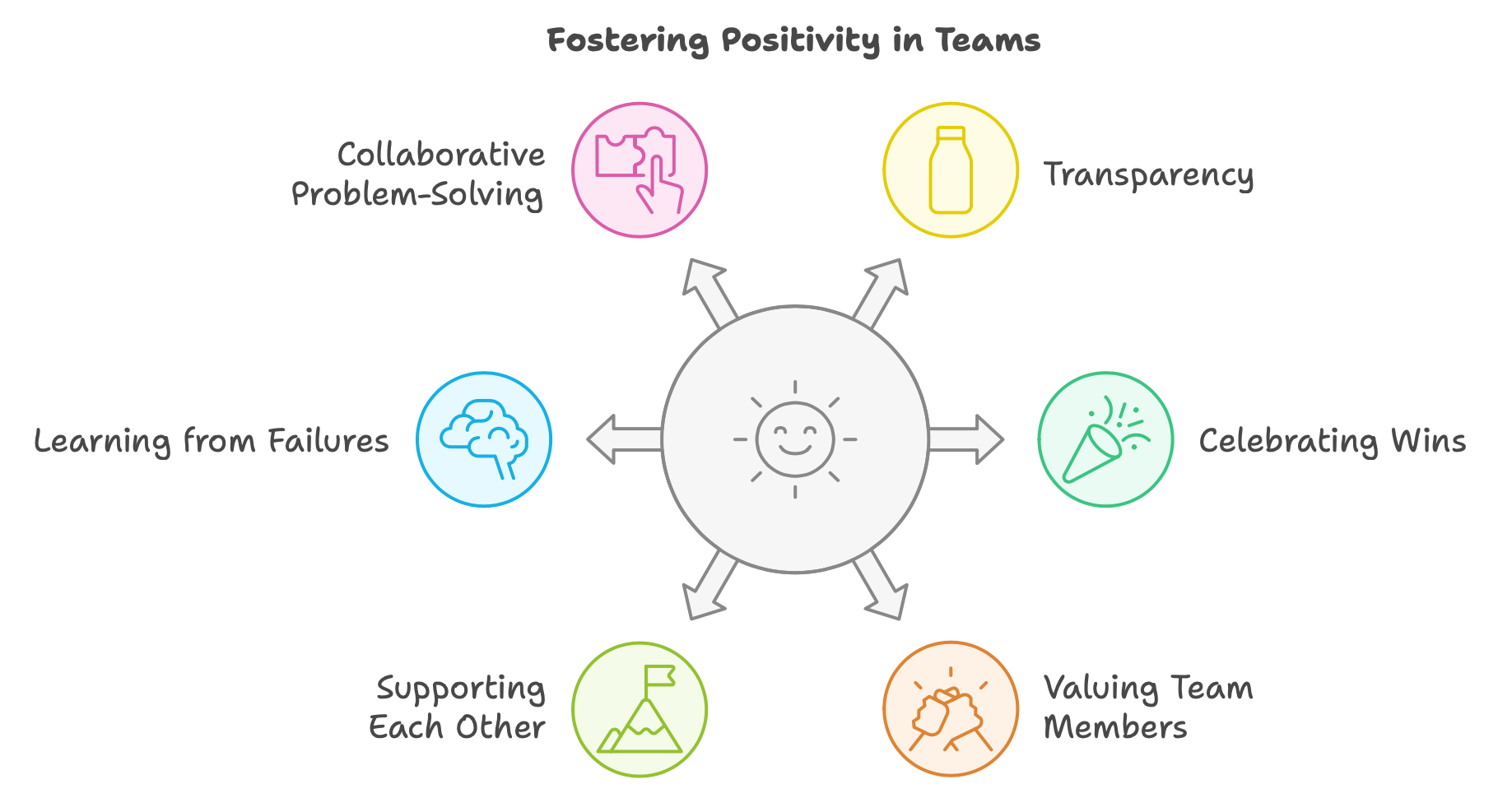
Encouraging transparency, celebrating small wins, and making sure team members feel valued and heard can go a long way in preventing toxicity. Positivity isn't just about cheerleading; it's about creating a culture where everyone supports each other in tough times, learns from failures, and approaches problems collaboratively rather than with blame.
Turning "Not Working with Jerks" into a Superpower
The skill of recognizing and avoiding jerks in your hiring process can be a superpower in talent acquisition. A “jerk” in Sutton’s book is someone who bullies, undermines others, and creates a toxic environment. When you bring someone like that into a company, it doesn’t just affect one department—it can have a ripple effect on morale, retention, and overall company culture.
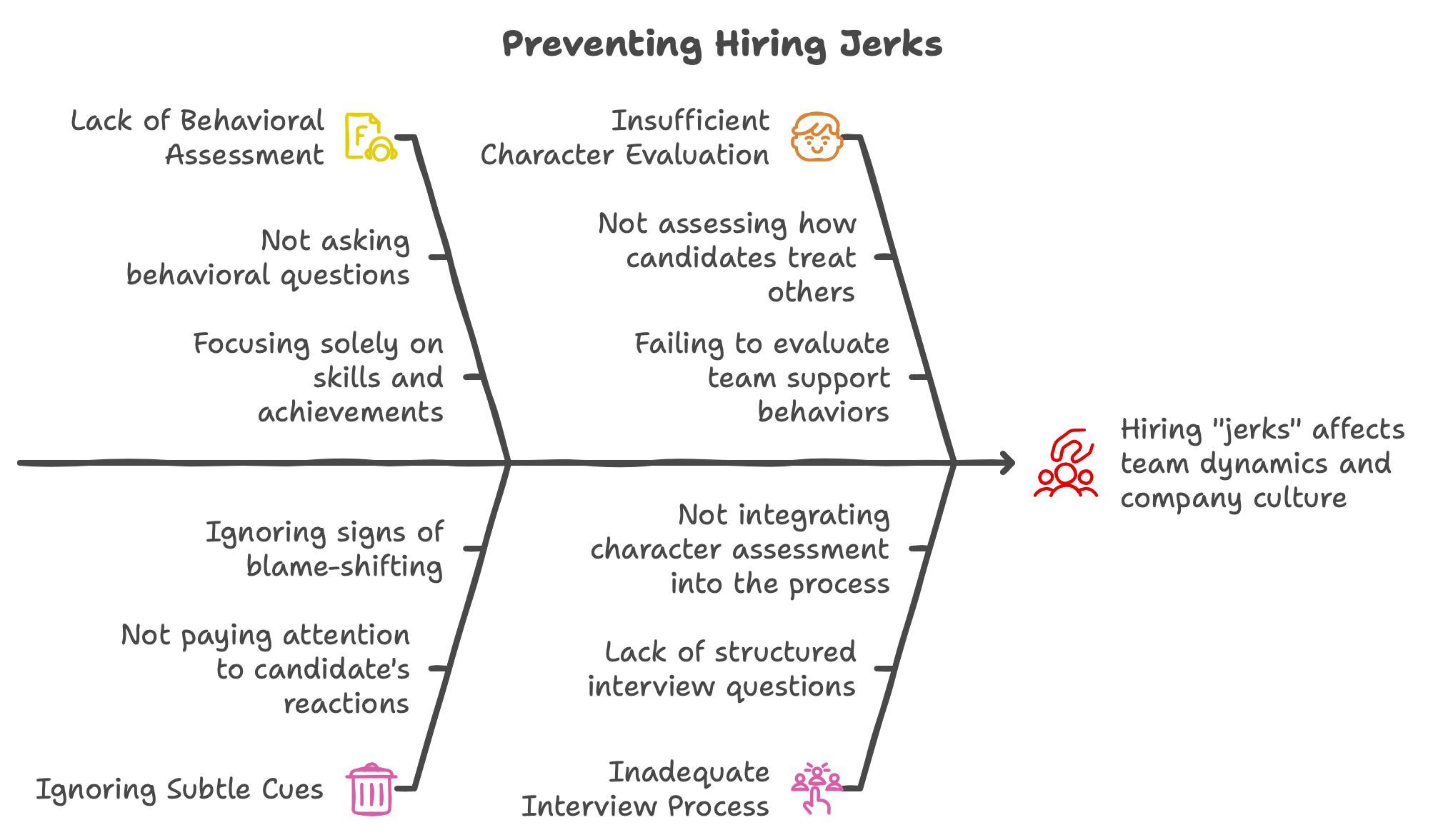
Hiring someone who treats colleagues poorly can result in higher turnover and can damage the employer’s brand. Talent acquisition professionals need to be extra cautious of not just hiring for skills but also for character. One of Sutton's central arguments is that how someone treats those beneath them is one of the best indicators of their true character. This is a concept that should be baked into the interview process.
When interviewing candidates, go beyond their resume and achievements. Ask behavioral questions that reveal how they handle conflict, how they support team members, and how they’ve dealt with failure. Pay attention to subtle cues—are they quick to blame others or do they take ownership of their mistakes? These insights are invaluable in ensuring that you aren’t bringing a “jerk” into the team.
The Science Behind Jerks in the Workplace
Sutton backs his claims with science. One of the most interesting parts of his book is the explanation of "pecking order" dynamics, first discovered by Norwegian zoologist Thorleif Schjelderup-Ebbe. In talent acquisition, this could be likened to power plays between candidates, hiring managers, and HR professionals. People often jockey for dominance, and those lower in the hierarchy may become the targets of abuse.
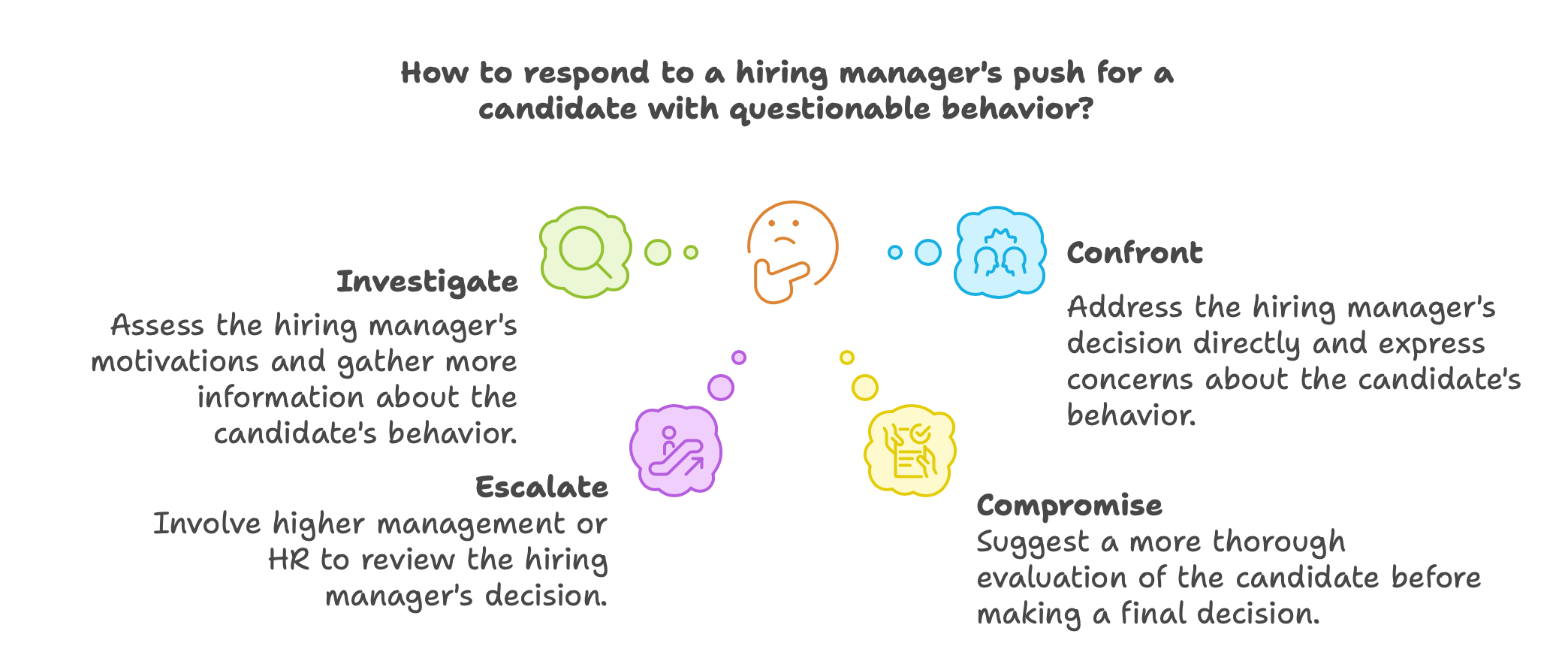
Understanding these dynamics helps talent acquisition specialists better navigate power imbalances in the hiring process. For instance, if a hiring manager is pushing to hire someone with questionable behavior, consider whether it’s coming from a place of genuine assessment or if it’s influenced by internal politics or biases.
Are Jerks Born or Made?
Sutton discusses the psychological and biological roots of jerk behavior. Some individuals, due to the way their brains are wired, might be more prone to immediate gratification or lack the self-control needed to navigate professional environments thoughtfully. Sutton humorously refers to these types as people who would fail the famous "marshmallow test"—a psychological experiment where children are asked to delay eating a marshmallow for a bigger reward later.
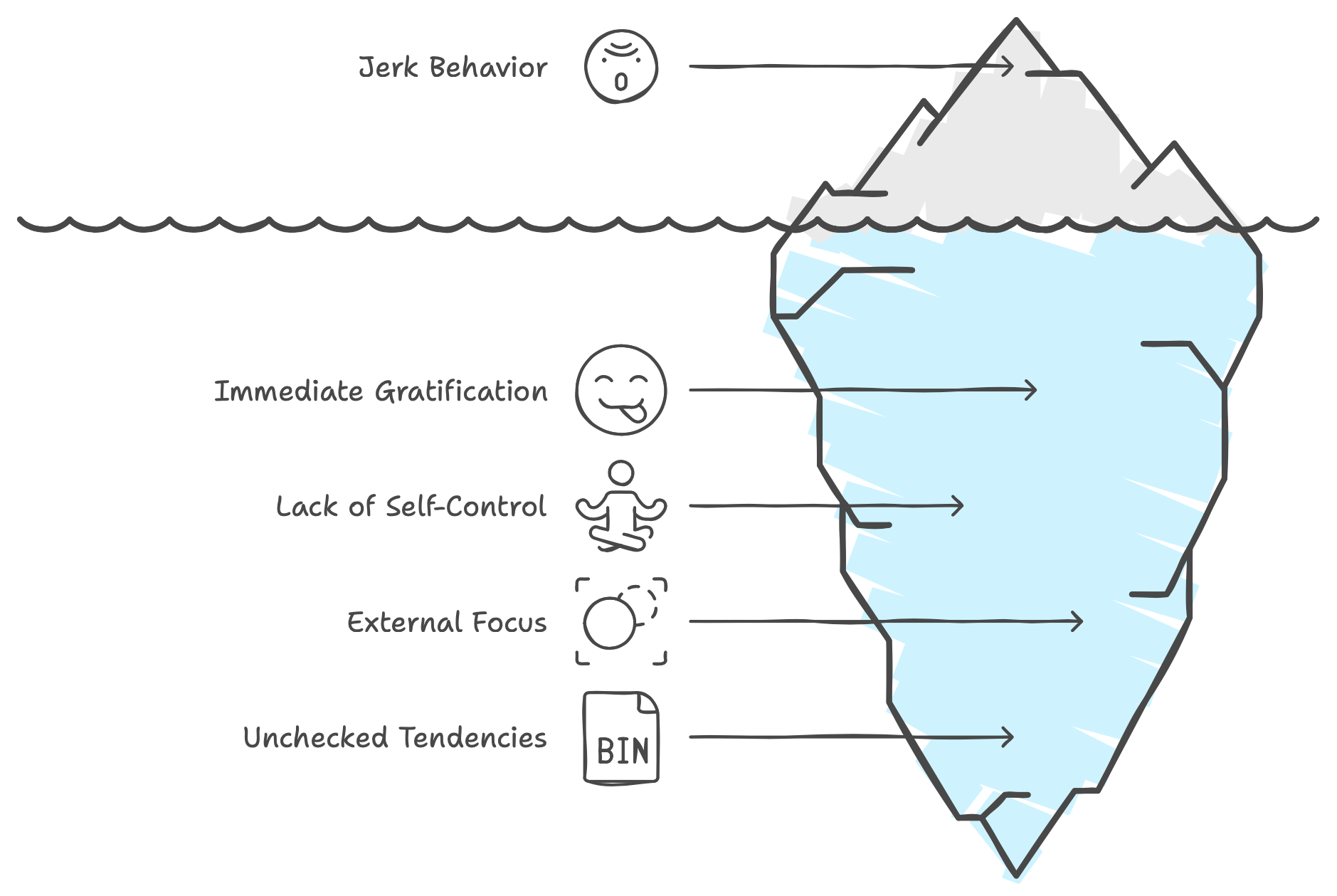
In talent acquisition, you encounter both types - those who plan and consider the long-term effects of their actions (internals), and those who seek immediate wins, often to the detriment of the team (externals). The latter group, if left unchecked, often devolves into “jerks.” Recognizing these patterns during the hiring process can help ensure that you’re hiring people who will contribute positively to the workplace in the long run.
How to Handle External Personalities in Hiring
Working with candidates who are more impulsive or less self-controlled doesn’t mean they’re not talented or valuable. However, these individuals might need a different management style. They may be more prone to last-minute rushes or procrastination but can thrive in high-energy, dynamic environments. Sutton suggests that leaders focus on creating structures that can accommodate both internals and externals while ensuring no one’s behavior crosses into toxic territory.
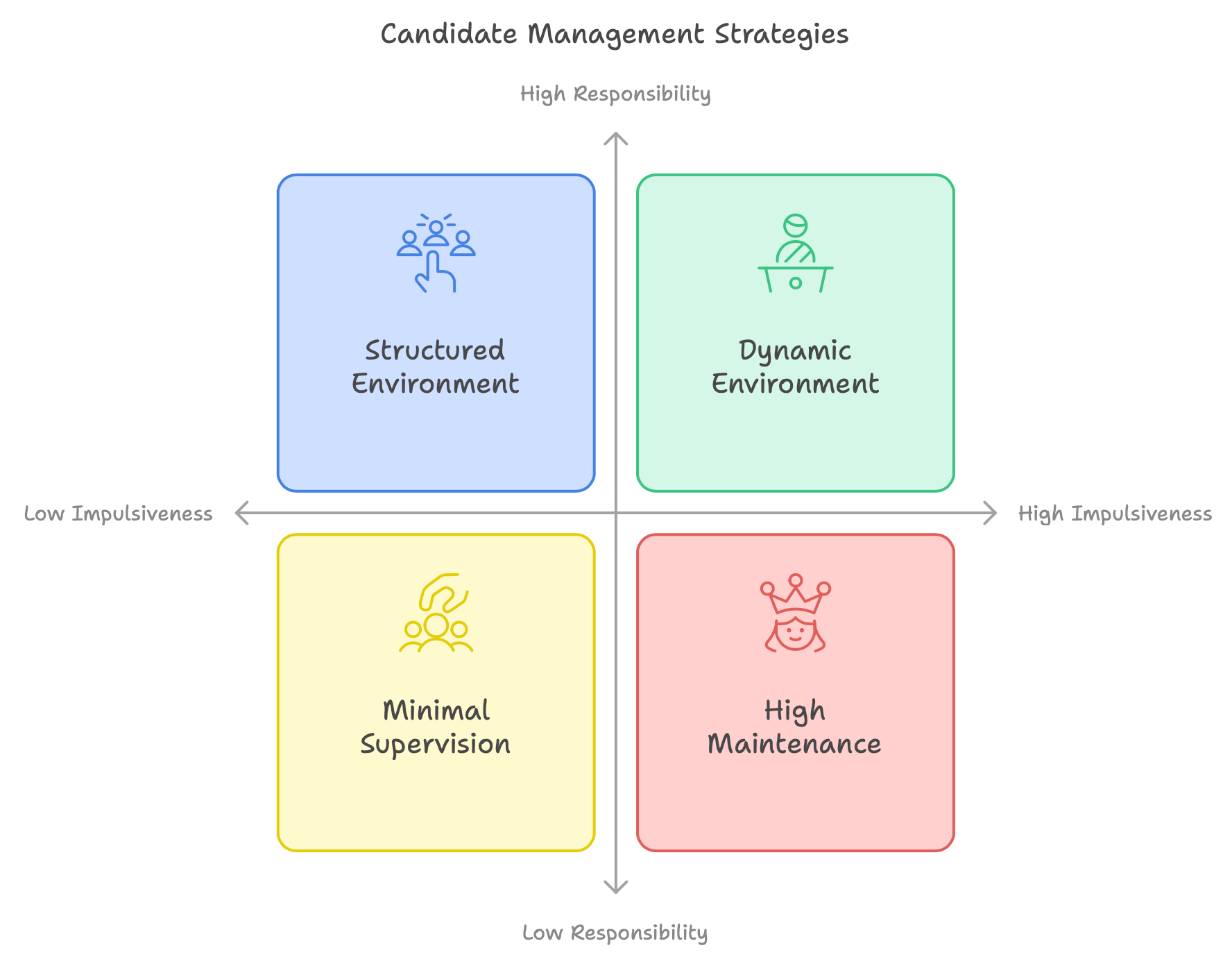
When hiring for roles that require high levels of responsibility and planning, be extra cautious about bringing in external personalities who might prioritize their own interests over the team’s. These types can become high-maintenance hires, requiring more supervision and potentially damaging the culture you’ve worked hard to build.
Personal Responsibility: The "Laws of Moose"
One of the most impactful points Sutton makes is the concept of responsibility. In English, there are two terms: “responsibility,” which refers to proactively shaping outcomes, and “accountability,” which deals with being held answerable after the fact. In the context of hiring, it’s critical to promote a culture where employees and hires take “responsibility” over merely being “accountable” after mistakes are made.
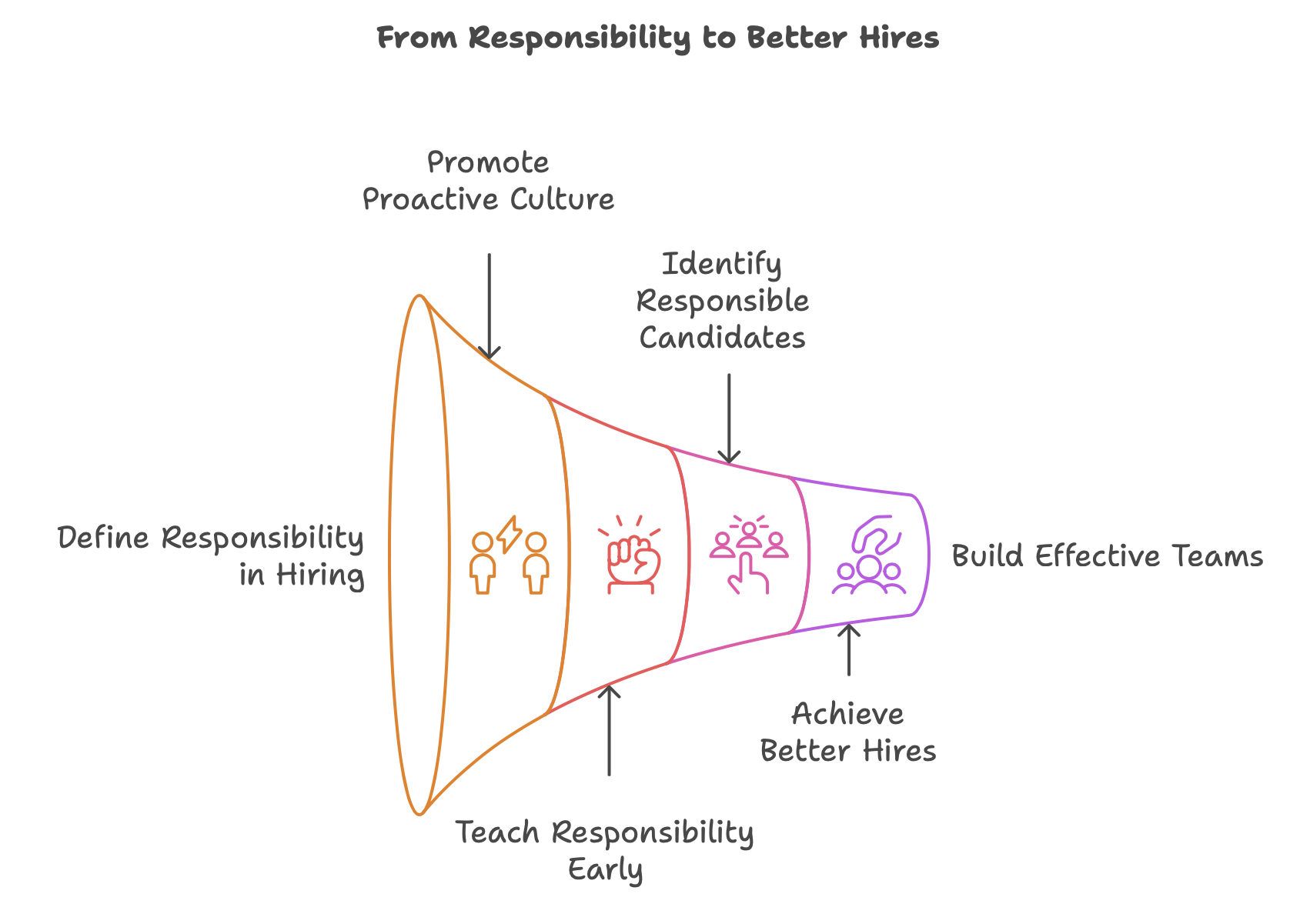
Teaching this principle during the hiring process—making it clear that you're looking for people who take responsibility from day one—can lead to better hires. A candidate who proactively works to ensure success will always be more valuable than one who simply deals with consequences after the fact.
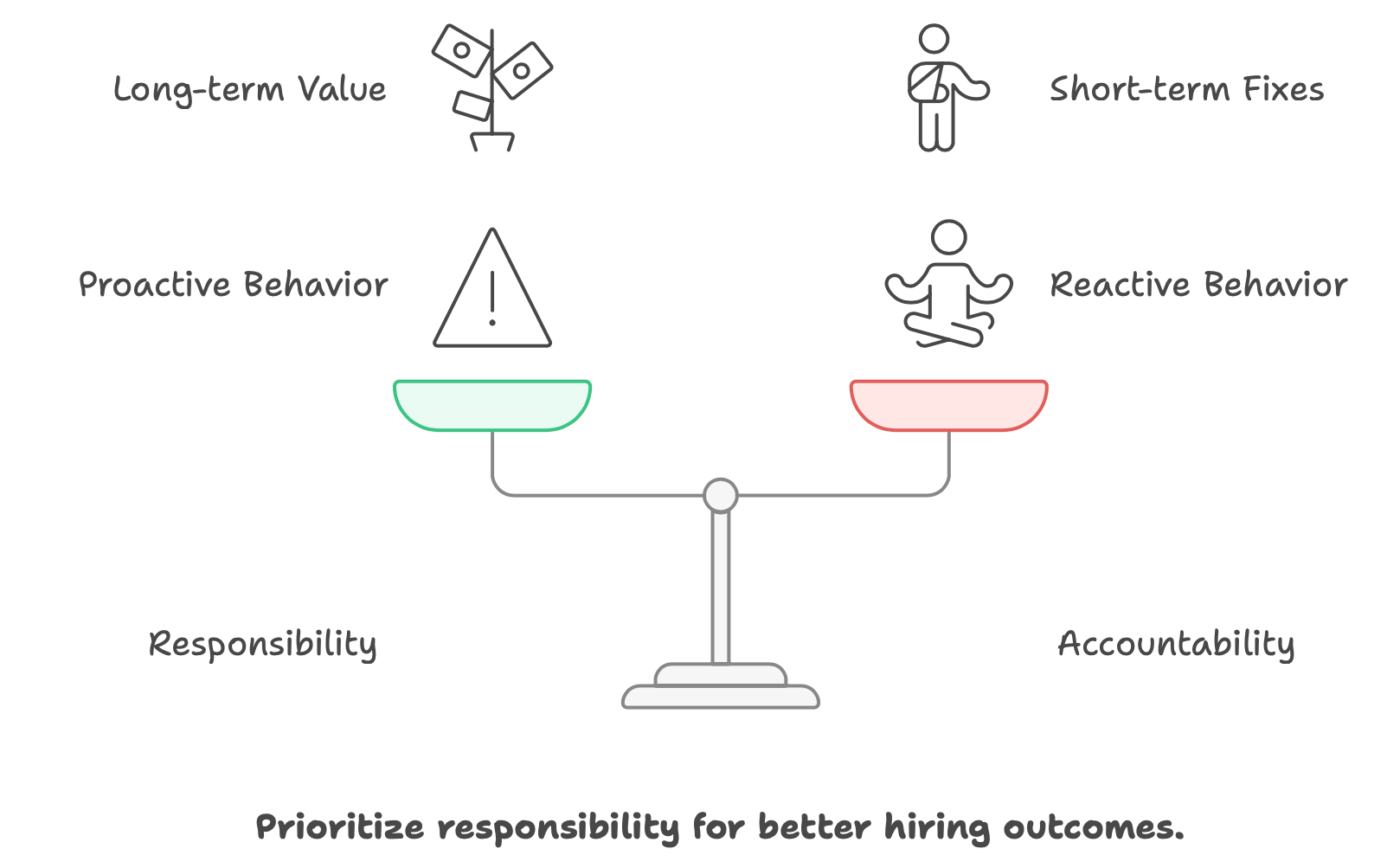
My Thoughts
Sutton’s insights about jerks and toxic behavior are invaluable not just for managers but especially for those in talent acquisition. The quality of your hires directly shapes company culture, and bringing in just one toxic personality can derail an entire team. It’s important to remember that character matters as much as, if not more than, skill. And the ultimate lesson here is that creating a positive, jerk-free workplace starts with you. Ensuring you don’t overlook red flags, or let external pressures rush your hiring process, is key. Read our article about avoiding painful hiring mistakes.
Talent acquisition is the first line of defense in building a great culture. Keep in mind that sometimes it’s better to pass on a seemingly high-performing candidate if there are signs they could disrupt the team. The long-term health of the organization depends on it.
How UnitiQ Helps Build Jerk-Free, High-Performing Teams
At UnitiQ, we specialize in providing fractional HR services on demand to support talent acquisition and HR operations. Our experts help companies hire based on values—ensuring that new hires not only have the right skills but also fit into your company culture. By focusing on identifying toxic behaviors during the hiring process, we help businesses avoid the costly impact of toxic employees. Want to know more about the difference between UnitiQ and other talent acquisition companies?
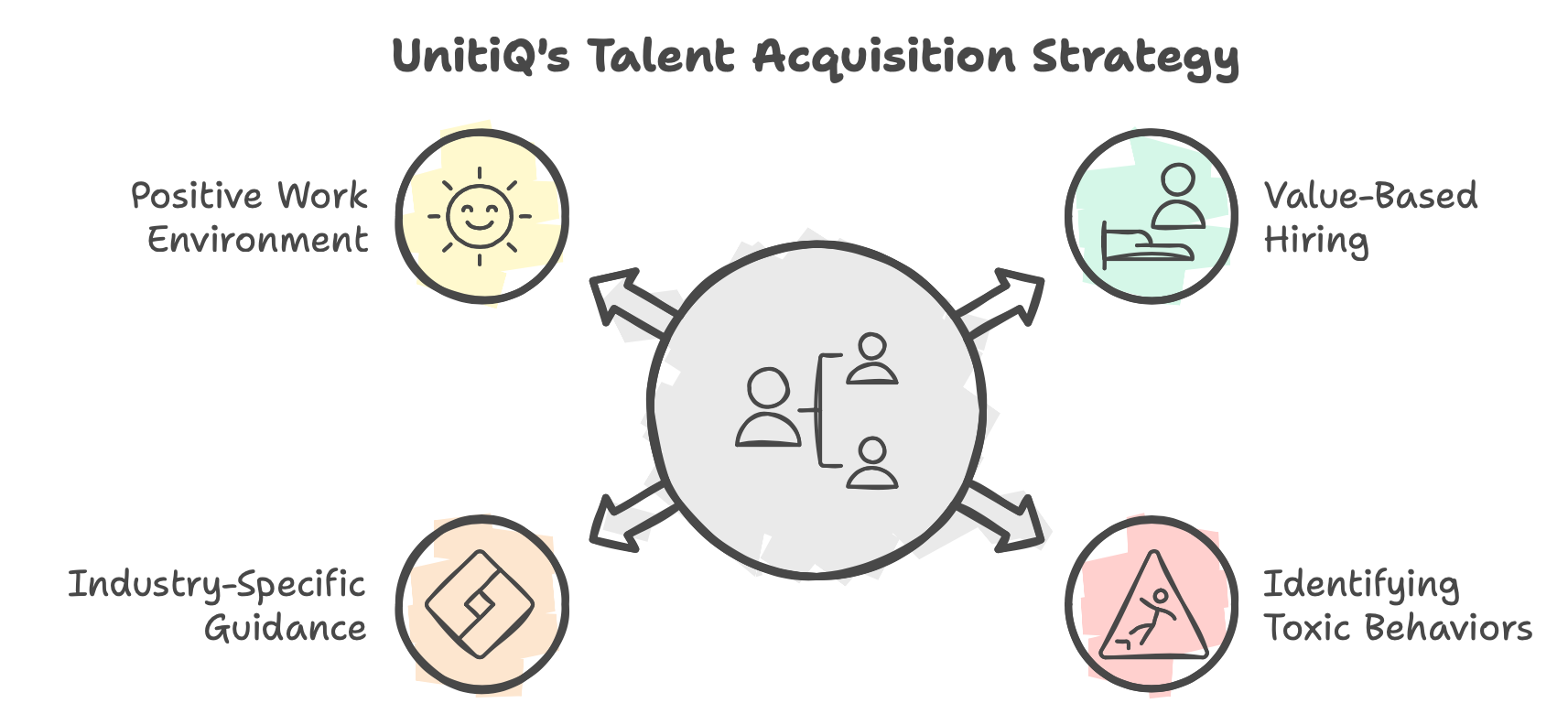
With our pool of industry-specific experts, we guide interviews, ensuring the candidates align with your team's ethos, contributing to a positive, productive work environment.
We are happy to help you with Talent Acquisition and HR tasks, please contact me, Olga Fedoseeva, Founder at UnitiQ, directly:
My Telegram
My LinkedIn
We are happy to help you with Talent Acquisition and HR tasks, please contact me, Olga Fedoseeva, Founder at UnitiQ, directly:
My Telegram
My LinkedIn








